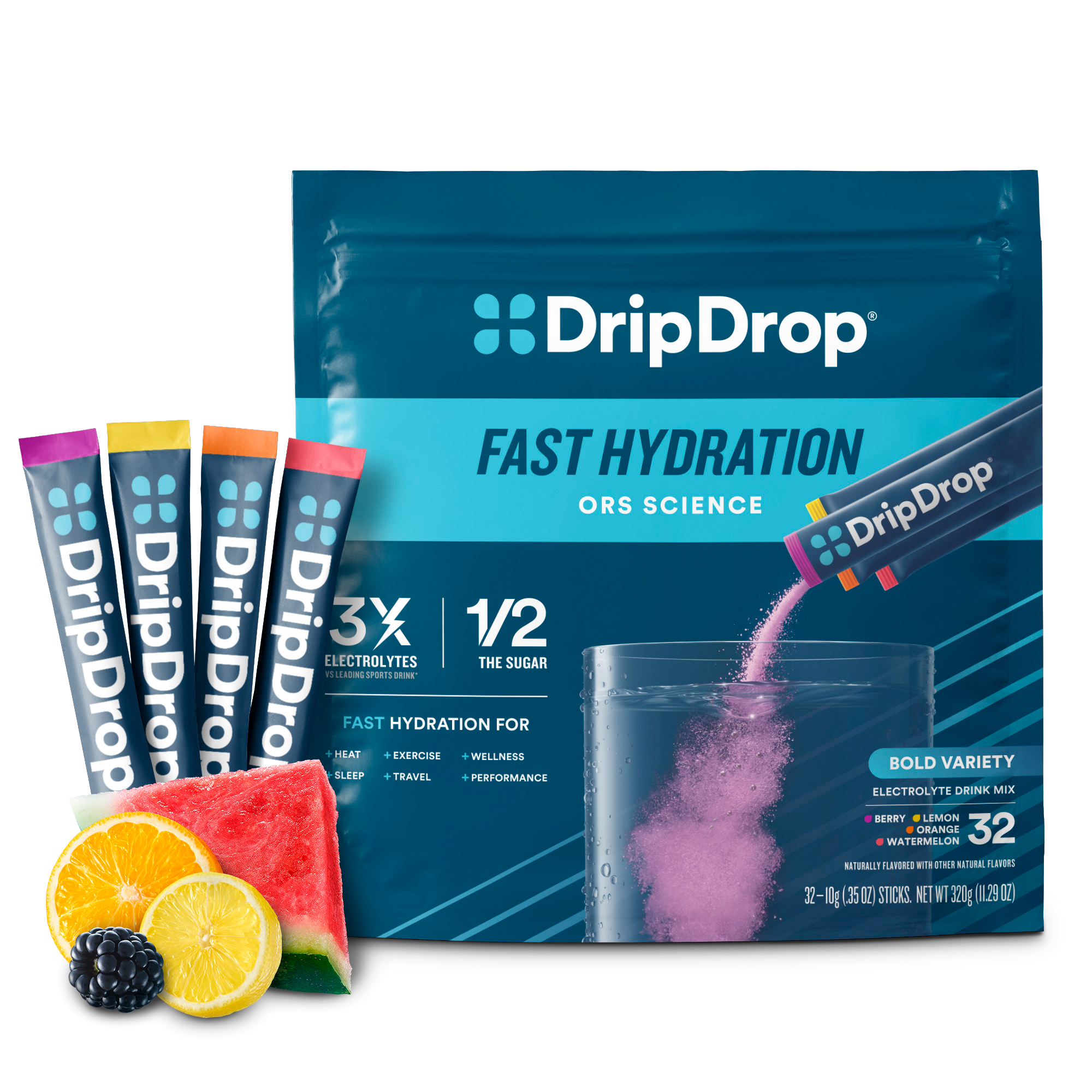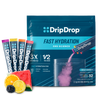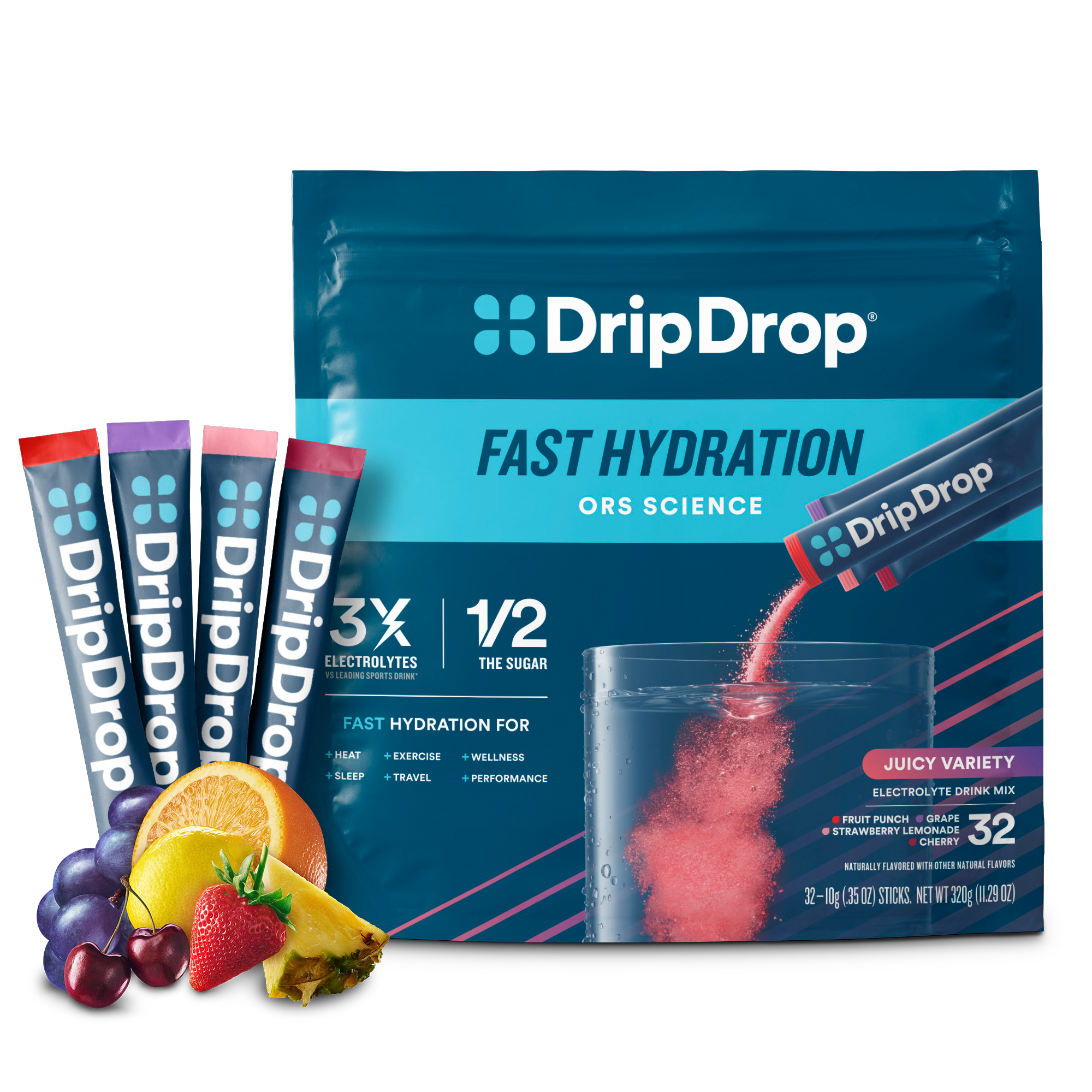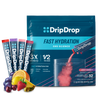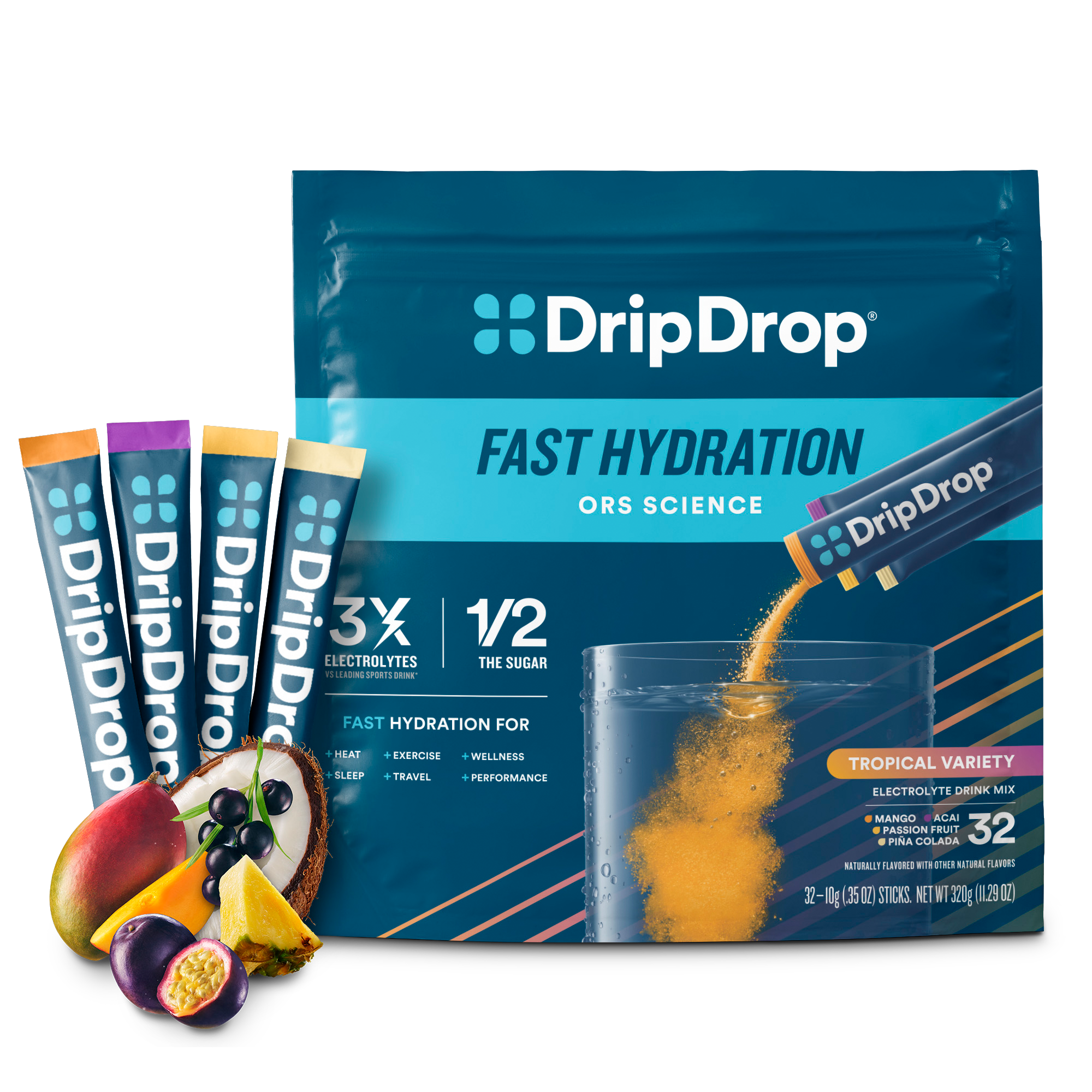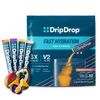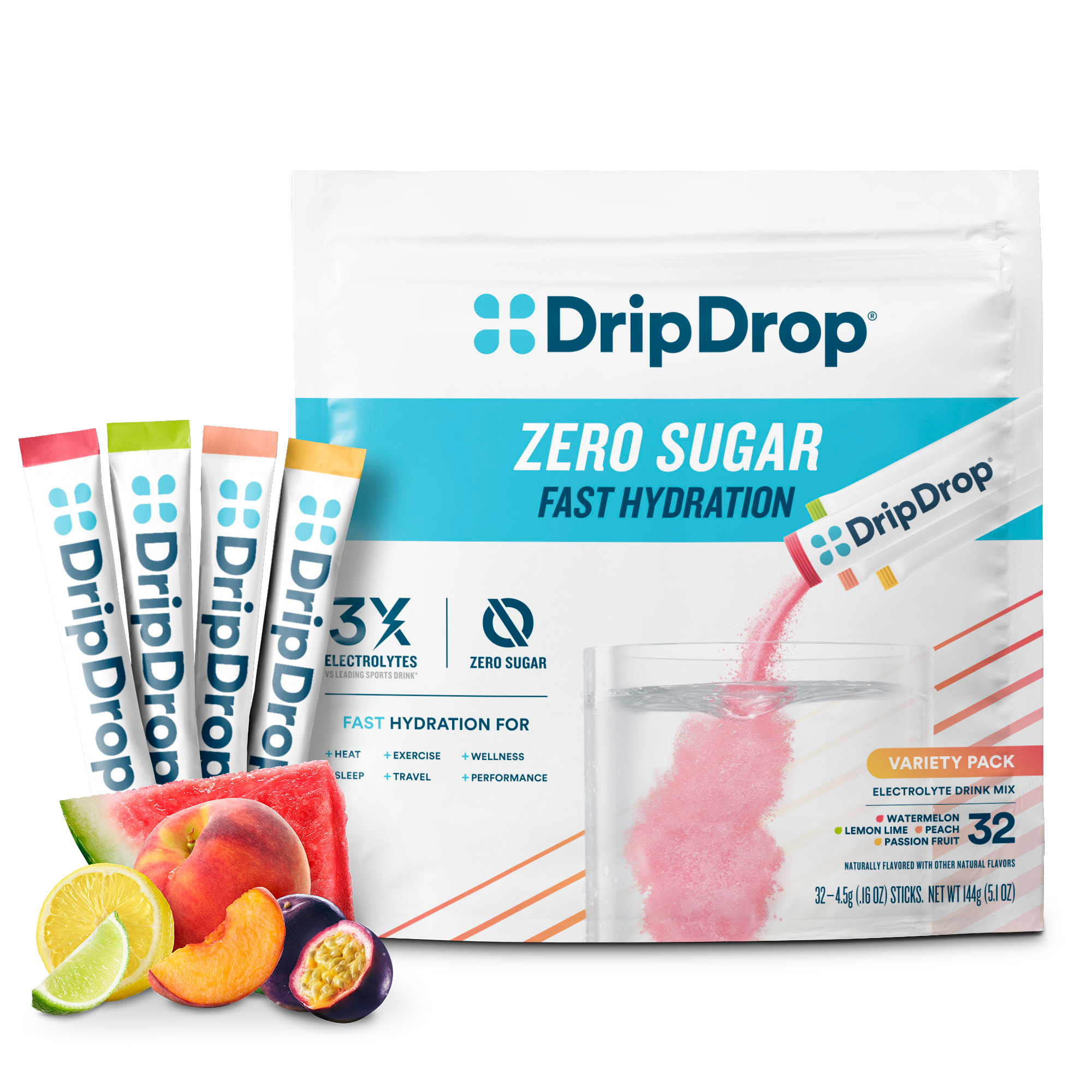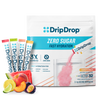You know that water is an essential component of overall health. Whether you’ve tried to boost your physical performance, increase weight loss, or boost mental capacity, you’ve probably been told to drink water. You might have wondered, “Does water give you energy?”
The answer is yes. That’s because when you don’t get enough water, your body stops working optimally due to a condition called dehydration. Dehydration can make you feel sluggish, tired, and moody. It can affect your ability to recall information, decrease muscle movement, and result in foggy thoughts and impaired decision making.
So does water give you energy? Here, we’ll show you how dehydration is linked to low energy and the importance of hydration when it comes to cognitive and physical performance.
Does Water Give You Energy?
You may be wondering, “does water give you energy?” Water gives you energy by helping to prevent symptoms such as fatigue and tiredness that come with dehydration. Drinking a glass of water, even with an oral rehydration solution (ORS), won’t give you an energy boost unless you’re suffering from dehydration. That’s because it doesn’t contain any stimulants such as the caffeine found in energy drinks. However, drinking water with an electrolyte solution will help to bring energy levels back up to normal when your fatigue is caused by dehydration.
In addition, tap water (or sparkling, filtered, etc.) alone isn’t enough to remedy dehydration. You need a precise balance of electrolytes to stave off fatigue, muscle cramps, and brain fog caused by dehydration. That’s why it’s important to develop a hydration protocol using a solution like DripDrop. DripDrop allows you to remedy mild to moderate dehydration without the need for costly and painful IV therapy.
How Dehydration Links To Low Energy
One of the main signs of dehydration is low energy, also called tiredness or fatigue. In fact, people with chronic dehydration often feel constant tiredness that just never seems to go away. Dehydration can also cause confusion, difficulty thinking, and brain fog. Making matters worse, dehydration can result in physical impacts such as weak muscles, muscle pain, and an increased risk of infection such as kidney stones and UTIs.
Here’s why. Water accounts for around 60% of human body weight. This water is found in everything from your blood to cells and organs. However, this fluid isn’t just made up of plain water. It also contains electrolytes such as sodium, magnesium, and potassium. Your body needs these minerals and fluid to carry out normal functions.
Electrolytes and fluids are essential for enabling muscle movement, sending signals across neural pathways, water retention, and controlling blood fluid volume. They also help to cushion your joints, control body temperature, and transport nutrients. Without enough water and fluids, your body processes become disrupted and slow down.
As dehydration sets in, you start to experience impacts on both your physical and mental health. You may notice that it’s hard to focus and develop a headache. That’s because your brain shrinks when it doesn't get enough fluids. This pulls brain matter away from your skull, creating a dull, throbbing pain. In addition, without enough fluids and electrolytes, your brain can’t send neurological signals as quickly, resulting in a sluggish mood, exhaustion, and difficulty concentrating.
Hydration is important to not only energy levels, but overall health and physical performance.
The Importance of Hydration
While you may know that water is good for you, you may not understand why. The health benefits of water range from increased energy to better cognition. Here’s how staying hydrated and getting enough fluids and electrolytes benefits your health.
Physical Performance
Proper hydration is essential for physical performance. Your body needs fluids and electrolytes to move the body and recover after physical exercise. When you work out or work hard on the job site, your body sweats to control your internal temperature. This sweat is made of fluids and electrolytes that evaporate on your skin to create a cooling effect.
If you don’t replace these lost fluids, dehydration sets in and starts to affect your ability to perform. In fact, research shows that a 5% loss of fluid — which can happen simply by working in high temperatures or forgetting to stay hydrated — can result in a 30% decrease in work capacity.
It’s not just about athletic performance. Being dehydrated can also impact your physical performance on the job, especially if your career requires you to do tough jobs and hands-on labor. For firefighters, police officers, home builders, and factory workers staying hydrated can make the difference between a successful day on the job and one that results in injury.
Cardiac Performance
Closely linked to physical performance, cardiac efficiency can also be impacted by dehydration. That’s because dehydration reduces your blood volume, resulting in low blood pressure. This in turn decreases the amount of blood that is pumped to your heart, making it harder for your body to keep pumping oxygen and nutrients to muscles.
As a result, you may begin to feel fatigued. In addition, your VO2 max — the maximum rate of oxygen your body can consume during exercise — decreases. This means you’ll be less able to perform high-intensity exercises or job functions as dehydration sets in.
Cognitive Performance
We’ve touched briefly on the topic of “does water give you energy” and how dehydration can impact cognitive processes. Your brain is made up of about 80 percent water, so fluid losses of just 1.5% can cause dramatic changes in cognitive performance.
In fact, studies show that dehydration can directly impact your ability to think clearly and make decisions. Studies have shown that dehydration causes declines in short-term memory, psychomotor and working memory skills, and the quality of your mood and energy.
To avoid the negative effects of dehydration on energy levels and overall health, you need to develop a hydration plan.
How You Can Develop a Hydration Plan
You’ve probably heard the rule about drinking eight glasses of water a day. However, developing a hydration plan is more complex than simply drinking a set amount of water or increasing your water intake. You need to ensure your body is getting the proper amount of electrolytes, such as sodium and magnesium, to stay hydrated. While you could eat foods with high water content to increase your water consumption, it isn’t the most effective option.
The best way to hydrate is to incorporate an electrolyte solution like DripDrop into your hydration plan. Water and water-rich foods don't contain many electrolytes that your body needs to address dehydration. DripDrop contains medically relevant levels of electrolytes and is a proven, cost-effective alternative to IV therapy when it comes to mild and moderate dehydration.
For cases of mild to moderate dehydration, DripDrop is a fast, effective, and great tasting remedy. With convenient packaging that allows you to have DripDrop when you need it, where you need it.
Try to drink water and electrolytes throughout the day. Pack a few DripDrop packets and a water bottle in your work bag or gym bag so you always have a high-quality dehydration protocol on hand.
Avoid Dehydration-Related Low Energy With DripDrop
When you're in a state of dehydration and feeling tired or sluggish, water alone is not enough. Your body needs the perfect balance of sodium and glucose to help absorption and boost fluid intake.
DripDrop was developed by a doctor on a mission to defeat life-threatening dehydration. The precise formula provides medically relevant electrolyte levels, improving on the World Health Organization’s Oral Rehydration Solution (ORS) standards with its delicious taste, giving you a medically viable ORS that also tastes great. By comparison, sports drinks contain about one-third the electrolytes of DripDrop ORS and twice as much sugar.
Get started with our most popular multi-flavor pouch of electrolyte powder for dehydration relief fast. Or, learn more about how you can save up to 25% on every purchase when you subscribe.



